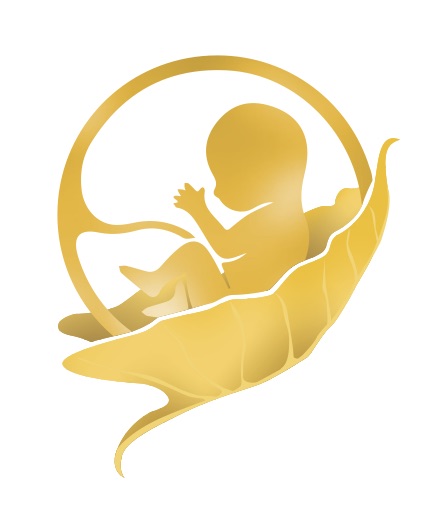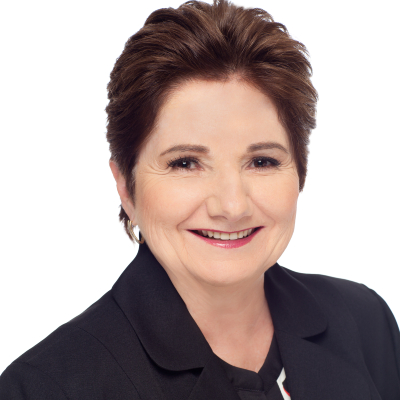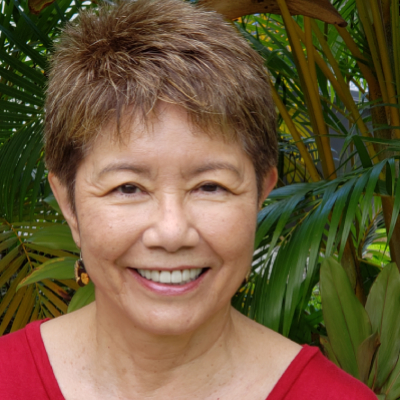
With the impending release of two new bipartisan FASD bills at the national level, FASD United wants to highlight some important state victories. As an affiliate of FASD United, the Hawai’i FASD Action Group is familiar with the territory- the triumphs and difficulties that come with FASD awareness. It was an honor to sit down with two of the organization’s leaders- Ann Yabusaki (founder and director) and Cleota Brown (president and director). These women are powerhouses in their state, advocating for FASD education, disability rights, and political recognition.


In FASD Hawaii’s own words, their mission is to raise awareness through education, advocacy, and research on the impact of Fetal Alcohol Spectrum Disorder (FASD) on individuals, their families, and the communities of Hawai’i. They explore and promote this mission through support groups and their speakers bureau, as well as other ventures. This group has been fighting for HB 899 & SB 318 to create a statewide FASD task force to develop guidelines and recommendations for governmental support of affected individuals and families. In addition to, accelerating scientific discoveries, and increasing prevention and access to therapeutic rehabilitation services for pregnant people with alcohol use disorders; in order to, provide meaningful resources and relief to individuals and families living with these disabilities.
While these victories are fantastic, they took dedicated work to achieve. It all began with a legislative request in 2016. From there, Ann Yabusaki and her husband Kenichi took a stand on FASD, although she mentions that when brought up, “nobody knew what it was.” John Mizuno, a legislator, recognized it and excitedly decided to help FASD Hawai’i by sponsoring legislation that year. As time passed, Ann and her husband gave talks to service providers and agencies, courts, anyone who would listen, as well as to graduate programs about FASDs, and discovered a graduate student who was interested- Darlyn Chen Scovell. Together, they thoroughly educated themselves on the legislative processes.
“That’s when we began to connect with other people in the Department of Health, Department of Human Services, Department of Education, Foster Care, Autism…we began to form a bond with them,” Ann states. In turn, FASD Hawai’i began to create and pass a bill to bring together the departments. They attempted to win support by forming an FASD committee with interested parties. Unfortunately, when the bill did not pass, the committee fell apart. This was not the end of the road though, the Yabusakis were ready to keep fighting. They continued to educate lawmakers on the services and supports needed for those with FASDs. “What we’ve learned is, we’ve got to show up, we’ve got to show face, and present effects.” And that’s what they did. At a conference between the House and Senate, FASD Hawai’i was able to demonstrate the importance of developmental disabilities and the policies necessary to aid those with them. Again, the bills were sponsored.
Cleo Brown comes from the corporate world but has been with FASD Hawai’i for two years, and says “the stars aligned for us this year.” A persistent woman, she has supported the Yabusakis and the organization by heavily pushing for support from district senators and representatives. She worked with FASD United’s policy team for guidance and connectivity. With continuous testimony and information, the team was able to form important relationships and advocate from all angles. Brown notes that in addition to these connections, The Department of Health’s objective stance provided aid in this process, as well as the State Council on Developmental Disabilities, Hawaii Disabilities Rights Center, and many others concerned about the lack of support of FASDs. “We had strong support,” Cleo claims. The team tracked information, communicated with over 200 volunteers, and provided testimony to be widely available. Ann adds, “It started with grassroots effort. It was tremendously difficult in the beginning,” but with persistence and passion the group was able to find success as their momentum grew.
H.B.899 officially marks September as FASD Awareness Month for the state of Hawai’i. Cleo explains, “with this enacted, we can go out and raise funds for an FASD awareness campaign,” which the group has attempted before to no avail “because there’s nothing behind it that substantiates it.” This bill passing allows FASD Hawai’i to have backing as they attempt to gain funding through grants, in addition to supports for FASD. Ann explains that, “it puts us on the map, we will not have to worry about getting proclamations in the future.”
S.B 318 “is the perfect fit for September awareness month,” Cleo states, requiring the Department of Health to administer a five-year pilot program for the diagnosis and treatment of individuals with FASDs. Although they did not receive the full amount of funding they desired, last year, FASD Hawai’i got approved for a 300 thousand dollar GIA (grant-in-aid) that they are in the process of finalizing now: “This GIA is to launch an exploratory program to conduct FASD assessments.” The team is aiming for definitive diagnosis, “The two bills that were most important to us passed!” Cleo exclaims. As the only 501(c)(3) in Hawai’i solely focused on FASD, these bills are massive victories to provide care, education, and funding in the state. “It will be the first program in Hawai’i that actually screens for FASD in a definitive manner, and then trains the counselors on modifying their treatment plans for clients (with FASD),” Ann says. The data collected will be incredibly important for those with developmental disabilities, as well as The Department of Health to hopefully “influence some of their programs in the future.”
The team mentions that they “are very very grateful for how things have worked out the way they have over the years,” not doubting their intensive efforts, but reminiscing on how far they’ve come. Ann states that support allowed them to continue forward when the journey got tough: “It’s nice to see something come out of it…I’m learning that change can be good.” Cleo adds, “last year I was frustrated…I’m not a leader that is accustomed to losing.” However, she remained vigilant, “I accepted defeat because it taught us a lot, and forced us to go back to the drawing board, I’m grateful for people like Ann and Ken, like Darlyn.” She then meaningfully vocalizes, “It truly does take a village, and we had right people in the village this year.”
The mission of FASD Hawai’i is far from over, “there’s a lot of planning going on for September, we’ve got to make the most of FASD Awareness Month.” The group is also about to hire their first employee and are screening the candidates, “we’ve got some talent in there to choose from,” Cleo says. In addition, they are looking to secure more funding to broaden the impact of their bills and work through their GIA. Following Cleo’s comments, Ann asks, “how do we proceed from here?” She has been working on their upcoming projects, like the September FASD conference, which is their first in-person gathering since the pandemic, finding funds, and working with the DOH. The team is already looking into future legislation and what they can do to promote it, “we’re talking about it with our legislators,” Ann delightedly states.
The national effort is also crucial, Ann says they “want to get The Respect Act (2.0) passed, I want to see it funneled to Hawai’i and where we can take it is where my dream would be.” FASD legislation is a vigorous process, as the spreading of correct, non-stigmatizing information is requisite. Cleo states that with its passing, the nation “could start to look at a comprehensive set of needs for the FASD community.” The process is unique to each state, “they need to look at where they are and assess where they might get a win.” Ann chimes in with advice, “it’s really been about the relationships. They provide an opportunity for new discussions about FASD.” The pair then commend Darlyn Chen Scovell for her purposeful effort and focus in this area of “what to present to them (legislators) as to what we want.”
Challenges with FASD advocacy are “endemic and systemic,” Ann says. “I don’t know the answer yet, but working with this understanding will help states and advocates think about this differently.” Education is vital, and the questions being asked must be strategic. Small successes drive this field, as the FASD community at large knows; these victories, no matter the size, are essential. “It’s grassroots community efforts,” Cleo states, “we welcome feedback.” Following their state victories, this team is motivated more than ever (and they’ve been motivated), to explore and educate the FASD field.
Join FASD United in congratulating Hawai’i FASD Action Group and all they have accomplished. The FASD community is so proud, thank you for your hard work.
Want to donate to FASD Hawai’i?
Need resources in Hawai’i?
